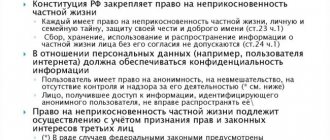One of the most socially dangerous crimes against the person and sexual integrity is rape. The legislator singles out this crime and provides for heavy sanctions of imprisonment.
ATTENTION: you need to contact our criminal lawyer in time, who will work with you to develop the correct line of defense that can defend your interests, so sign up for a consultation with a criminal lawyer today.
What is the punishment for rape?
Punishment for rape will depend on the qualification of the defendant’s actions under one or another part of Article 131 of the Criminal Code of the Russian Federation. The sanctions of the corresponding article provide for imprisonment for a minimum period of 3 years, and a maximum, taking into account the gravity of the act committed, i.e. for which part a person is convicted, for a term of up to 20 years, and for the most serious crime, life imprisonment is provided.
How much do they pay for rape? The answer can be understood by studying all the nuances of a particular case together with our lawyer, who will give not only a preliminary assessment of the possible sentence, but also suggest ways to mitigate the punishment or prove innocence.
In addition to imprisonment, the defendant may be simultaneously sentenced to:
- restriction of freedom up to 2 years
- deprivation of the right to hold certain positions or engage in certain activities for a period of up to 20 years.
According to the Criminal Code of the Russian Federation, a minor will be punished for rape only upon reaching 14 years of age; it is from this age that criminal liability for serious crimes begins.
Composition of the crime and qualifications
As already mentioned, rape in Article 131 of the Criminal Code of the Russian Federation means sexual intercourse under certain circumstances. The corpus delicti arises during sexual intercourse if it involves:
- using violence against the victim;
- with the threat of using such violence (verbally, gestures, objects);
- taking advantage of the victim's helpless state.
According to the clarifications of the Supreme Court dated (Resolution of the Plenum of December 4, 2014 No. 16), violence is understood as causing physical pain to the victim or restricting her freedom (for example, beatings or confinement), and if the use of violence led to serious harm or death of the victim, then, in addition to rape , the offender will be additionally charged with the corresponding article of the Criminal Code - 111 (intentional infliction of grievous bodily harm, negligent homicide) or 105 (intentional murder).
Liability for rape with the threat of violence occurs in cases where this threat was a means of suppressing the resistance of the victim and the latter had reason to fear that the threat would be carried out. A threat can be expressed verbally, by gestures, or by displaying objects, including weapons. If a threat to kill or cause grievous bodily harm was expressed after rape in order to force the victim not to tell anyone about the incident, this will be additionally qualified as a crime under Art. 119 of the Criminal Code of the Russian Federation (threat of murder or infliction of grievous bodily harm).
The state of the victim is recognized as helpless when she could not understand the nature of the actions being performed on her or resist the rapist. Such circumstances may be, for example, dementia or another mental disorder, physical weakness, when the victim is a minor or an elderly person, a sick or unconscious state, and the rapist must be aware that the victim is in a helpless state.
How to prove innocence when accused of rape?
To defend yourself when accused of rape, you must:
- understand the proof of the absence of corpus delicti in the acts that you are charged with, namely the absence of sexual intercourse between you and the victim, the girl’s consent to sexual intercourse, if there are signs of physical violence on the girl - sexual intercourse in a perverted form will be proven, but by mutual consent consent
- since examinations are required for this crime, and even as soon as possible, a rape lawyer will help you formulate and put in writing questions for experts, since re-appointing an examination is quite problematic and the courts rarely agree to this
- petition, as part of the investigation of the case or its consideration in court, to order additional examinations that will help establish your innocence (read our additional material in the section
- if necessary, we are ready to offer you an independent legal investigation in order to establish the necessary circumstances to maintain a line of defense
- The defense will also take other actions aimed at defending your position on the case, so the range of activities should not be considered closed and exhaustive
Similar formulations
The Criminal Code of the Russian Federation contains elements similar to rape, which, however, have their own distinctive features. Let's look at these compositions.
- Violent acts of a sexual nature (Article 132 of the Criminal Code of the Russian Federation). Firstly, unlike rape, the subject of this crime can be a person of any gender. Secondly, the objective side of the act consists of sodomy, lesbianism and other actions of a sexual nature, supported by violence or the threat of its use. While rape is always based on sexual intercourse in its natural form, that is, sexual intercourse initially biologically aimed at the continuation of the human race.
- Compulsion to acts of a sexual nature (Article 133 of the Criminal Code of the Russian Federation). The objective side is coercion to enter into an intimate relationship (not necessarily in the form of natural sexual intercourse) through the use of blackmail and threats of destruction of property. The perpetrator may also take advantage of the victim's dependence on him. The subject of the crime can be a woman or a man.
- Sexual relationship with a subject who has not reached the age of majority (Article 134 of the Criminal Code of the Russian Federation). The objective side consists of both sexual intercourse and other actions of a sexual nature, and not accompanied by threats, blackmail, or other violent actions. Subject is only an individual who has reached the age of 18 years. It is noteworthy that if the crime is committed for the first time and the victim of the crime and the perpetrator enter into a marriage union, then punishment will not be applied.
- Depraved acts (Article 135 of the Criminal Code of the Russian Federation). This crime is characterized by the fact that, as such, there is no intimate contact, sexual intercourse or other actions of a sexual nature between the perpetrator and the victim. Most often, this is the demonstration of various pornographic materials to a minor, aimed at awakening the child’s interest in this topic. The subject of the crime is only an individual who has reached 18 years of age. This crime can only be committed against a minor. It is noteworthy that in cases where the age difference between the offender and the victim is less than four years, the person who committed the crime provided for in the first parts of Art. 134 or 135 of the Criminal Code of the Russian Federation, imprisonment cannot be applied.
In some cases, the offender may commit several sexual offenses at once. For example, rape may well occur after a minor is exposed to pornography.
How to prove mutual consent to sexual intercourse?
Rape does not always actually occur because the sexual intercourse was consensual. How can such consent be proven if the victim claims rape? Let's consider several options for evidence before initiating a case, since most often the prosecution supports the victim and does not take into account the words of the defendant:
- Availability of objective evidence . If there is any correspondence related to the meeting between the accused and the victim, the purpose of which was to jointly satisfy their needs for sex, then such correspondence must be provided to the investigator. Also, evidence includes photographs, videos, audio files
- Availability of witnesses . If there are witnesses who could, even indirectly, confirm the relationship between the accused and the victim, their joint desire to have sex, their behavior after the act, then such witnesses should be questioned according to the circumstances of the case.
- The behavior of the victim . In a situation where the victim blackmails her partner after sexual intercourse, extorting money, this fact must be recorded using audio recordings, video recordings, witness statements, etc. In this case, it is necessary to record the fact of blackmail as much as possible, play for time, “playing along” with the alleged victim, while simultaneously turning to law enforcement agencies for help in order to carry out activities related to recording the fact of extortion on the part of the victim.
At the same time, “playing along” with the victim should not involve consent to commit a rape that did not occur. In this matter, it is better to first consult with a lawyer and jointly decide on the tactics of action.
Commentary to Art. 131 of the Criminal Code of the Russian Federation
The main object of the crime is the sexual freedom of women, and in the case of rape of a minor under the age of sixteen, sexual integrity. Sexual freedom is the freedom to choose a partner in sexual relations. Each person exercises sexual freedom at his own discretion. Sexual integrity means the prohibition of sexual relations with a person under sixteen years of age.
An additional object of rape is human health. When rape is committed, the victim can only be a female person, regardless of age and other data that characterize this person. In practice, cases of rape are known not only of strangers, but also of wives, cohabitants, close relatives, etc.
The objective side of the crime is defined in the law as sexual intercourse with the use of violence against the victim or other persons or taking advantage of her helpless state. The criminal law does not contain its own, legal concept of sexual intercourse. Its very brief definition is given in paragraph 1 of the Resolution of the Plenum of the Supreme Court of the Russian Federation dated June 15, 2004 N 11 “On judicial practice in cases of crimes provided for in Articles 131 and 132 of the Criminal Code of the Russian Federation,” which states that sexual intercourse should be understand the performance of sexual intercourse between a man and a woman.
———————————
Bulletin of the Supreme Court of the Russian Federation. 2004. N 8.
From the standpoint of law enforcement, the concept of sexual intercourse, used in medicine and defined as the connection (contact) of male and female genital organs (coitus), seems more complete. insertion of the male sexual organ into the female genital organs, regardless of the depth of penetration and physiological completion of sexual intercourse.
The concept of rape covers the forced commission of natural sexual intercourse between a man and a woman. All other “forcible sexual acts” committed in any other form are sexual assault. Responsibility for their commission is provided for in Art. 132 of the Criminal Code of the Russian Federation. Thus, sexual intercourse should be understood as the performance of sexual intercourse between a man and a woman in a natural form.
Rape is a crime committed with the use or threat of violence. The concept of violence covers both physical and mental violence. Physical violence consists of influencing a person’s body in order to suppress his resistance. It can be expressed in beatings, other infliction of pain, tying up, forcible confinement, etc. Most often, physical violence is expressed in external influence on the victim’s body, but in some cases violence can also consist of impact on the internal organs of the victim: giving narcotic drugs or psychotropic substances, toxic substances.
In the content of violence in relation to the main composition, provided for in Part 1 of Art. 131 of the Criminal Code of the Russian Federation also includes causing minor or moderate harm to health. Additional qualification of actions under the relevant articles of the Criminal Code of the Russian Federation establishing liability for crimes against life and health is also not required in these cases.
Psychological violence is carried out by influencing the psyche of the victim. The method of committing such violence is the threat of physical violence, which is the intimidation of the victim with the threat of immediate harm to her health or physical harm to her children, relatives and others, even strangers. The threat must be perceived by the victim as real, since only it can paralyze the woman’s resistance. The content of the threat of violence also includes the threat of murder. In this case, additional qualifications under Art. 119 of the Criminal Code of the Russian Federation is not required.
Violence or the threat of its use can be applied not only to the victim, but also to other persons. Under other persons specified in Art. Art. 131 and 132 of the Criminal Code of the Russian Federation, one should understand the relatives of the victim, as well as persons to whom the guilty person, in order to overcome the resistance of the victim (victim), uses violence or threatens to use it.
Therefore, the use of violence against third parties is included in the objective side of rape only in cases where it is intended to suppress the will of the victim to resist. For example, the victim’s consent to sexual intercourse, obtained under the threat of killing her child, falls under the elements of rape. In all other cases, the use of violence must be qualified if there are appropriate signs under other articles of the Criminal Code of the Russian Federation. Thus, beating a person trying, for example, to protect a woman from a rapist, call for help, and causing harm to his health require independent classification of this crime.
Deception of a woman, misleading her, and various kinds of promises do not fall into the category of violence. Therefore, the actions of a person who has obtained a woman’s consent to engage in sexual intercourse or commit acts of a sexual nature through deception or abuse of trust (for example, a knowingly false promise to marry her) cannot be considered as crimes against sexual integrity and sexual freedom of the individual.
Both types of violence must precede sexual intercourse. The use of violence and harm or threat of violence after sexual intercourse does not constitute rape. Thus, voluntary sexual intercourse and the subsequent threat of beating if the girl tells someone (for example, her mother) about what happened is not rape.
At the same time, the concept of rape covers not only sexual intercourse with the use of violence or the threat of its use, but also sexual intercourse taking advantage of the helpless state of the victim. The concept of this state is disclosed in paragraph 3 of the Resolution of the Plenum of the Supreme Court of the Russian Federation of June 15, 2004 No. 11 “On judicial practice in cases of crimes provided for in Articles 131 and 132 of the Criminal Code of the Russian Federation.”
The Plenum of the Supreme Court of the Russian Federation associates the helplessness of the victim’s condition with those situations where the victim, due to her physical or mental condition (dementia or other mental disorder, physical disabilities, other painful or unconscious state, young or old age, etc.) could not understand the nature and significance of the actions committed with her or to resist the guilty person.
The helpless state of the victim is assessed depending on the real ability of the victim, due to her physical or mental state, to understand the nature of the actions performed on her and the inability to resist the perpetrator, and the latter, when engaging in sexual intercourse, must be aware that the victim is in such a state.
At the same time, the victim’s minority in itself is not the only condition for recognizing her condition as “helpless.” To establish a “helpless state” it is necessary not only to establish the actual age of the victim, but also to determine whether she understood the actual side of the relationship between a man and a woman, to establish her level of development, awareness of sexual relations and their social significance. Establishing the fact of sexual experience of a minor victim is also essential.
The helpless state of the victim may also be a consequence of an illness with loss of consciousness (for example, diabetic coma, angina pectoris, epileptic seizure), fainting due to stress, heat stroke, etc.
The inability to provide physical resistance can be caused by old age, physical disabilities, illness associated with loss of motor functions (paralysis, osteochondrosis, acute arthrosis), etc., physical impact from the criminal or his accomplices.
When assessing the circumstances of rape in relation to a victim who was in a state of intoxication, one should proceed from the fact that a helpless state in these cases can only be recognized as such a degree of intoxication caused by the use of alcohol, drugs or other intoxicating substances, which deprived this person, for example, a victim woman, the opportunity to resist the rapist. Moreover, for the offense of rape using the helpless state of the victim, it does not matter whether the victim was brought into such a state by the perpetrator himself (for example, given alcohol, drugs, sleeping pills, etc.) or was in a helpless state, regardless of the actions of the person who committed the said crime.
Rape is one of the formal offenses. Therefore, the crime is completed from the moment the sexual intercourse begins, regardless of its completion and the consequences that occur.
When deciding whether a person’s actions contain complete elements of rape or sexual assault or only signs of an attempt to commit such criminal acts, it should be established whether the person acted with the intent to commit rape or sexual assault, and whether the person used violence is a means to achieve a specified goal, which was not achieved for reasons beyond his control. At the same time, it is necessary to distinguish attempted rape from violent acts of a sexual nature, as well as attempted crimes under Art. Art. 131 and 132 of the Criminal Code of the Russian Federation, from completed crimes falling under other articles of the Criminal Code of the Russian Federation, providing for liability for crimes against the health, honor and dignity of the individual.
Attempted rape must be distinguished from voluntary refusal to commit a crime (Article 31 of the Criminal Code of the Russian Federation), which excludes criminal liability. If a person was aware of the possibility of carrying out criminal actions to the end, but voluntarily, i.e. not due to reasons that arose against his will, and finally refused to commit rape, what he did, regardless of the motives for refusal, is qualified according to the actually committed actions, provided that they contain elements of another crime. In other words, voluntary refusal (subject to the conditions specified in Article 31 of the Criminal Code of the Russian Federation) is possible before the start of a natural physiological act. A refusal cannot be considered voluntary if, having overcome the resistance of the victim, the perpetrator was unable to continue his actions for physiological or other reasons not related to his will (for example, the disappearance of an erection).
If the actually committed actions of the perpetrator contain elements of another crime (hooliganism, insult, battery or harm to the health of the victim), the act is qualified under the relevant articles of the Criminal Code of the Russian Federation.
In situations where the commission of several sexual acts was covered by the intent of the perpetrator, the act should be qualified as a single ongoing crime. Unity of intent may be evidenced by such circumstances as the commission of several sexual acts without a break or with a break for a short time. In this case, a single crime will occur only if identical actions are committed. Therefore, if the intent of a person includes the commission (in any sequence) of rape and violent acts of a sexual nature against the same victim, the act should be assessed as a set of crimes provided for in Art. Art. 131 and 132 of the Criminal Code of the Russian Federation. In this case, for the qualification of the crime, it does not matter whether there was a gap in time during the commission of rape and sexual assault against the victim.
The subjective side of rape is characterized by direct intent. The perpetrator is aware that he is committing sexual intercourse as a result of violence, without the consent of the victim and against her will, and desires its commission. The motives for the crime do not matter for the qualification of the act, but their establishment is necessary for individualizing the punishment. Most often, the motive for committing rape is to satisfy sexual passion. But there are also other motives, for example, revenge, humiliation of human dignity.
The subject of rape can be any physically sane person who has reached fourteen years of age (general subject), but the perpetrator of the crime can only be a male person.
Part 2 of Art. 131 of the Criminal Code of the Russian Federation establishes liability for committing a crime under aggravating circumstances. The qualifying criteria included in this norm are: the commission of rape by a group of persons by prior conspiracy or by an organized group; rape accompanied by a threat of murder or infliction of grievous bodily harm, as well as committed with particular cruelty towards the victim or other persons; rape resulting in the victim becoming infected with a sexually transmitted disease, as well as rape of a known minor.
Rape is recognized as committed by a group of persons (a group of persons by prior conspiracy, an organized group) not only in cases where one or more victims are sexually assaulted by several persons, but also when the perpetrators, acting in concert and using violence or the threat of violence against several persons, then commit forced sexual intercourse with each or at least one of them.
The concept of a group of persons by prior conspiracy is given in Art. 35 of the Criminal Code of the Russian Federation. Gang rape includes both the actions of persons who directly committed a violent sexual act and the actions of persons who assisted them by using physical or mental violence against the victim. At the same time, the actions of persons who did not personally commit forced sexual intercourse or violent acts of a sexual nature, but who through the use of violence assisted other persons in committing a crime, should be qualified as co-perpetrators of gang rape (Part 2 of Article 33 of the Criminal Code of the Russian Federation), since these persons took direct participation in the fulfillment of part of the objective side of the crime - used violence. A group of persons may also include women as co-executors.
The actions of a person who did not directly engage in sexual intercourse with the victim and did not use physical or mental violence against her during the commission of rape, but only assisted in the commission of the crime with advice, instructions, providing information to the guilty person or removing obstacles, etc., must be classified under Part 1. 5 tbsp. 33 of the Criminal Code of the Russian Federation and in the absence of qualifying features - under Part 1 of Art. 131 of the Criminal Code of the Russian Federation.
The above-mentioned Resolution of the Plenum of the Supreme Court of the Russian Federation does not consider the issue of qualifying rape committed by several persons in cases where the subject of the crime is only one person, and the other person (persons) is not the subject of the crime due to insanity or not reaching the age of criminal responsibility. Judicial practice in resolving this issue follows the path of recognizing in such situations a qualifying feature of the commission of a crime by a group of persons by prior conspiracy. At the same time, this approach should be considered debatable, since, solving the same problem, but in relation to a different category of cases, the Plenum of the Supreme Court of the Russian Federation in paragraph 12 of the Resolution of December 27, 2002 No. 29 “On judicial practice in cases of theft, robbery and robbery" indicated: if a person has committed theft, robbery or robbery through the use of other persons who are not subject to criminal liability due to age, insanity or other circumstances, his actions (in the absence of other qualifying criteria) should be qualified in parts of the first Art. Art. 158, 161 or 162 of the Criminal Code of the Russian Federation as the actions of the direct perpetrator of the crime (Part 2 of Article 33 of the Criminal Code of the Russian Federation). The presence of a group of persons by prior conspiracy in these cases is not recognized.
Gang rape is considered completed from the moment the first participant begins sexual intercourse. Therefore, if one of the subjects of the crime, for example, was unable to commit sexual intercourse for physiological reasons or did not have time as a result of actions to suppress the crime, his actions must be qualified as a completed crime committed by a group of persons by prior conspiracy or by an organized group.
Clause “b” of Part 2 of Art. 131 of the Criminal Code of the Russian Federation provides for such qualified elements of rape as rape combined with the threat of murder or infliction of grievous bodily harm, as well as with special cruelty towards the victim or other persons.
The threat of murder or infliction of grievous bodily harm is a clearly expressed intention of the rapist to immediately deal with the victim or other persons by taking life or causing harm to health, falling under the signs of Art. 111 of the Criminal Code of the Russian Federation. However, the threat of murder or infliction of grievous bodily harm should be understood not only as direct statements that expressed the intention of immediate use of physical violence against the victim or other persons, but also such threatening actions of the perpetrator, such as, for example, the demonstration of weapons or objects that could be used as a weapon (knife, razor, ax, etc.).
Responsibility for rape with the threat of murder or infliction of grievous bodily harm occurs only in cases where such a threat was a means of overcoming the resistance of the victim and there were grounds to fear that this threat would be carried out. In these cases, the objective side of the qualified crime includes both rape and death threats. Therefore, additional qualification of the act under Art. 119 of the Criminal Code of the Russian Federation is not required.
If the threat of murder or infliction of grievous bodily harm was not aimed at suppressing the resistance of the victim, but was expressed after the rape for the purpose, for example, so that the victim would not tell anyone about what happened, the actions of the perpetrator, in the absence of qualifying circumstances, are subject to qualification under Art. 119 of the Criminal Code of the Russian Federation and in conjunction with Part 1 of Art. 131 of the Criminal Code of the Russian Federation or, accordingly, with Part 1 of Art. 132 of the Criminal Code of the Russian Federation.
Clause “b” of Part 2 of Art. 131 of the Criminal Code of the Russian Federation only covers the threat of murder or infliction of grievous bodily harm. Actual intentional infliction of grievous bodily harm caused during rape (attempted rape) must be qualified under the relevant part of Art. 131 of the Criminal Code of the Russian Federation and in conjunction with the crime provided for in Art. 111 of the Criminal Code of the Russian Federation.
Intentional infliction of grievous harm to the health of the victim during the process of rape, which resulted in his death through negligence, in the absence of other qualifying features, should also be classified as a set of crimes provided for in Part 1 of Art. 131 and part 4 of Art. 111 of the Criminal Code of the Russian Federation.
When committing a murder during rape, the act is also subject to qualification according to the totality of crimes provided for in paragraph “k” of Part 2 of Art. 105 and part 1 of Art. 131 of the Criminal Code of the Russian Federation, or under the relevant parts of these articles, if rape was committed, for example, against a minor or under fourteen years of age, or by a group of persons, a group of persons by prior conspiracy, or an organized group.
Committing a murder after the end of rape or attempted rape in order to conceal the crime committed or for reasons of revenge for resistance committed by the guilty person should be classified as a set of crimes provided for in paragraph “k” of Part 2 of Art. 105 of the Criminal Code of the Russian Federation and the relevant parts of Art. 131 or part 3 of Art. 30 of the Criminal Code of the Russian Federation and the relevant parts of Art. 131 of the Criminal Code of the Russian Federation.
Rape with particular cruelty towards the victim or other persons is an independent qualifying feature specified in paragraph “b” of Part 2 of Art. 131 of the Criminal Code of the Russian Federation. Particular cruelty means inflicting physical or moral torture and suffering on the victim. Particular cruelty can be expressed in mockery and mockery of the victim, torture during rape, infliction of bodily harm, rape in the presence of relatives or friends of the victim, as well as in a method of suppressing resistance that causes severe physical or moral torture and suffering to the victim herself or other persons. In this case, the qualifying sign of rape with special cruelty will occur only if the intent of the perpetrator included inflicting special torment and suffering on the victims.
Responsibility under clause “d”, part 2 of Art. 131 of the Criminal Code of the Russian Federation occurs in cases where the person who infected the victim with a venereal disease knew that he had this disease, foresaw the possibility or inevitability of infection of the victim and desired or allowed such infection. At the same time, additional qualifications under Art. 121 of the Criminal Code of the Russian Federation is not required.
The issue of committing rape of a known minor should be resolved similarly. This qualifying feature will only occur if the guilty person reliably knew about the age of the victim (he was a relative, acquaintance, neighbor) or when the appearance of the victim clearly indicated his age.
A conscientious delusion that arises on the basis that the age of the victim is approaching eighteen years of age or, due to acceleration, he looks older than his age, excludes the imputation of the considered qualifying feature to the guilty person.
Part 3 Art. 131 of the Criminal Code of the Russian Federation provides for liability for rape in the presence of special qualifying criteria:
- negligently causing the death of the victim;
- which, through negligence, resulted in serious harm to the victim’s health, infection with HIV infection or other serious consequences;
- rape of a victim known to be under fourteen years of age.
Causing the death of the victim through negligence means that the intent of the perpetrator did not include the occurrence of this consequence. For example, wanting to suppress the resistance of the victim, the perpetrator strangles her, seeking not death, but only the cessation of resistance.
The concept of grievous bodily harm is given in Part 1 of Art. 111 of the Criminal Code of the Russian Federation. Clause “b” of Part 3 of Art. 131 of the Criminal Code of the Russian Federation covers the commission of rape, which through negligence entailed consequences recognized as serious harm to health: loss of speech, vision, hearing, etc. In this case, there must be a causal connection between the consequences and the rape.
Careless infliction of grievous harm to the health of the victim during the commission of rape is covered by paragraph “b” of Part 3 of Art. 131 of the Criminal Code of the Russian Federation and does not require additional qualifications under other articles of the Criminal Code of the Russian Federation.
According to the same norm of the Criminal Code of the Russian Federation, the actions of the perpetrator must be qualified if they resulted in the victim becoming infected with HIV. In this case, these actions are subject to qualification under paragraph “b” of Part 3 of Art. 131 of the Criminal Code of the Russian Federation both in case of careless and intentional infection of the victim with HIV infection.
Other grave consequences of rape are consequences that are not associated with the negligent infliction of serious harm to the health of the victim or her infection with HIV. For example, the victim’s suicide may be recognized as such.
The rape of a victim who is known to be under the age of fourteen, just like the rape of a minor, presupposes a knowing, i.e. accurate knowledge of the victim’s age by the perpetrator.
How to mitigate the punishment when pleading guilty to rape?
In the case where a person admits his guilt, this fact in itself is a mitigating circumstance when imposing a punishment.
If the sanction of part of the article provides for a maximum penalty of up to 10 years of imprisonment, then the accused may declare the case to be considered in a special manner, and if the victim agrees to this, the maximum penalty should not exceed 2/3 of the maximum sentence.
In addition, you can try to reconcile with the victim and make amends for the moral damage caused by making a payment of funds. Taken together, all of the above points will help mitigate the punishment, unless, of course, the injured party is inclined to impose the maximum punishment on the defendant.
USEFUL : watch the video with additional tips regarding collecting characterization material on the accused, which will help mitigate the punishment for rape







